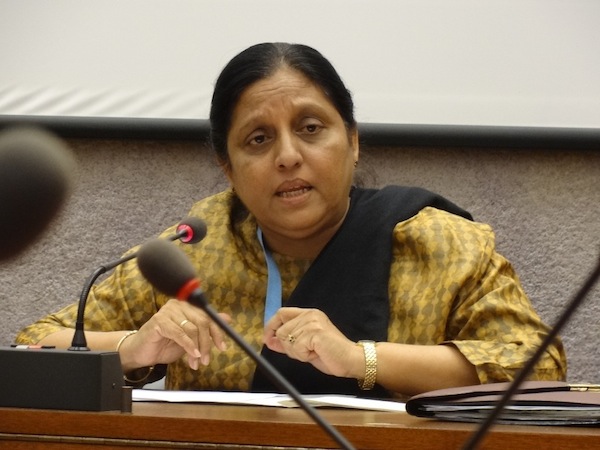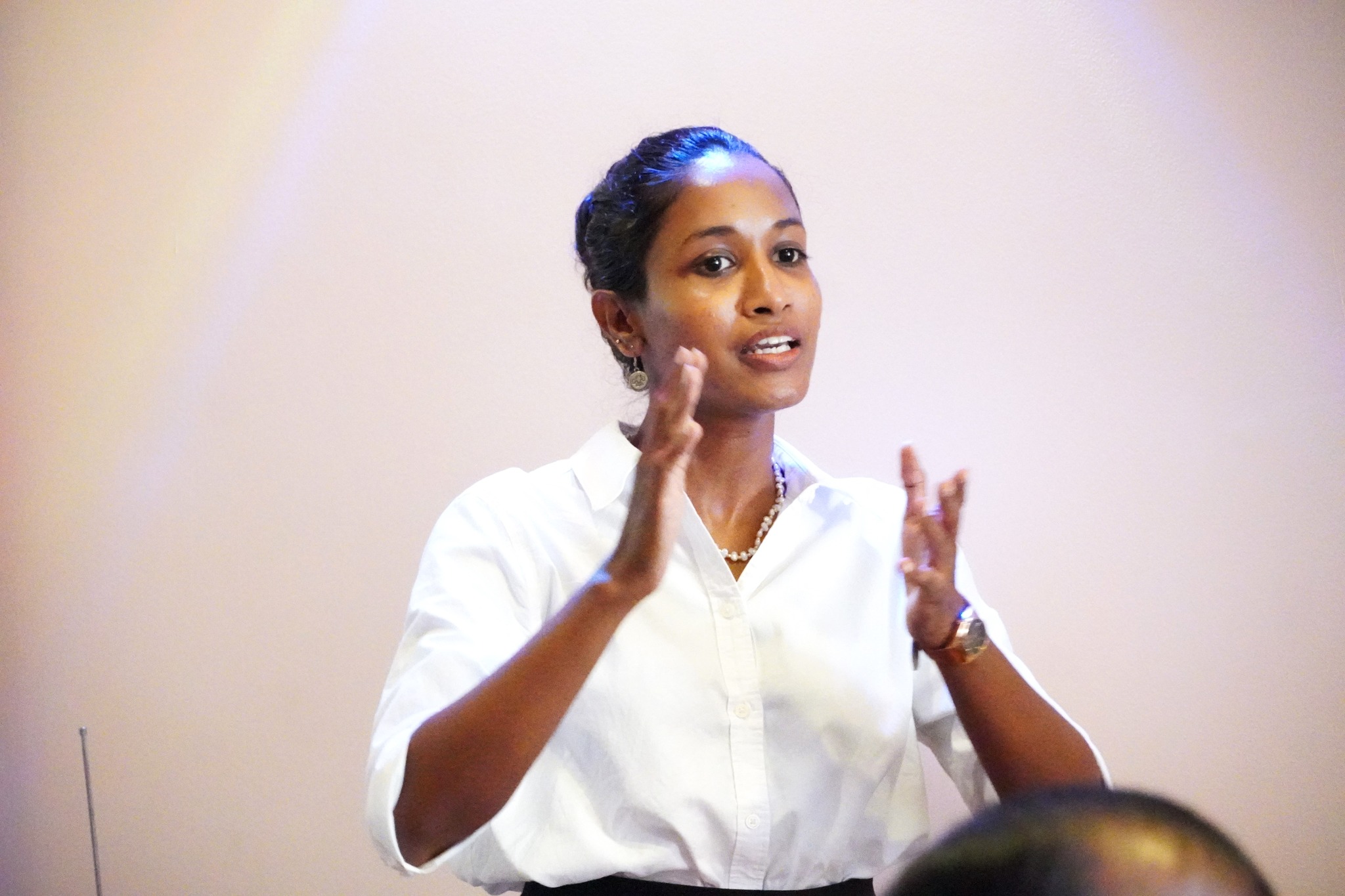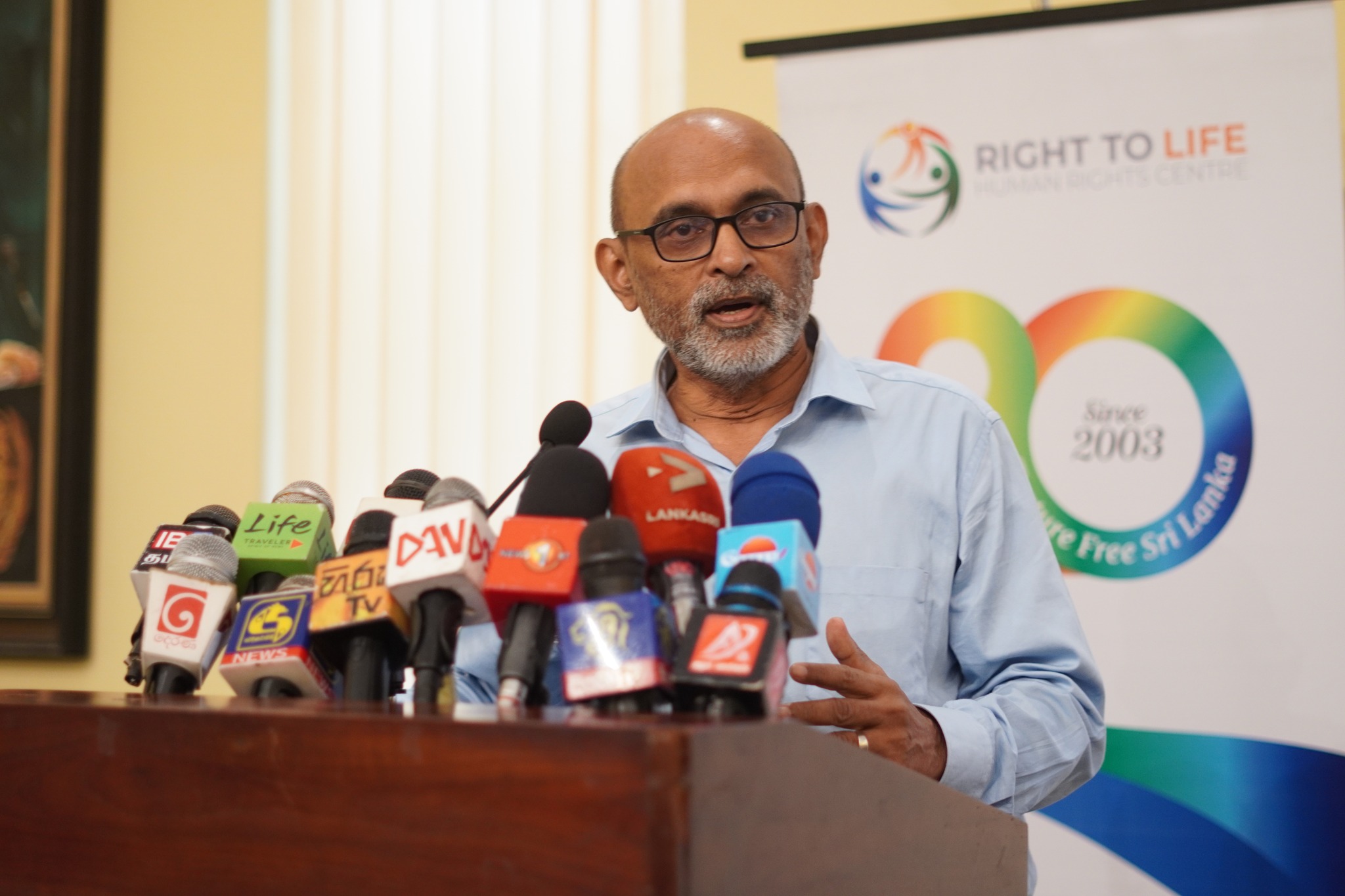Nineteen years ago, on a fateful morning in Trincomalee, Subramaniyam Sugirdharajan, known to his peers as SSR, was silenced. SSR, a journalist freelancing for the Tamil daily Sudar Oli, was gunned down on January 24, 2006, near his home as he waited for transport to work. His death was not just an attack on a man but a direct assault on press freedom and justice in Sri Lanka. His residence was located along the Lower Road facing the Trincomalee harbor in the suburb of Orr’s Hill in Trincomalee. The Governor’s secretariat was situated close to the scene of crime.
 SSR’s work was rooted in bravery and an unyielding commitment to truth. His reporting played a pivotal role in exposing the brutal massacre of five students in Trincomalee on January 2, 2006.
SSR’s work was rooted in bravery and an unyielding commitment to truth. His reporting played a pivotal role in exposing the brutal massacre of five students in Trincomalee on January 2, 2006.
Manoharan Rajikar, Hemachandran Yogaraja, Lohitharaja Rohan, Thangathurai Sivananda, and Shanmugaraja Gajendran, five school students in their twenties, were shot dead on January 2, 2006.
Government claims that the students had died in a grenade explosion were dismantled by SSR’s photographs, which revealed point-blank gunshot wounds. These images, published in Sudar Oli on January 4, 2006, brought international attention to the crime, directly challenging the official narrative and implicating state forces. He also accompanied one of the fathers of the murdered students, Dr Manoharan, to the mortuary. Dr Manoharan later led the struggle for justice to his son and the others.
SSR’s reporting detailed human rights abuses by Tamil paramilitary groups, including the EPDP, who operated in the region under state protection. Despite mounting threats, he persisted, bringing these truths to light. His courage, however, made him a target.

On the morning of January 24, two assassins on a motorbike fired at him from close range, leaving him dead on the spot. The attack occurred in an area with a heavy military presence, a fact that underscores the culture of impunity surrounding such crimes. Witnesses and residents reported no significant follow-up investigations, no arrests, and no justice. The crime remains unsolved, shrouded in silence and fear.
The brutality of SSR’s murder exemplifies the broader challenges faced by journalists in Sri Lanka, especially during the height of the civil war. In the 12 months surrounding his death, a number of journalists were killed, and many others faced harassment, detention, or worse. Tamil media outlets like Sudar Oli were frequent targets of violence, with grenade attacks and killings further illustrating the precariousness of reporting in such an environment.
 The international response to SSR’s death was swift but ultimately ineffective. Organizations like Reporters Without Borders (RSF) and the Committee to Protect Journalists (CPJ) condemned the killing, urging the Sri Lankan government to investigate and hold the perpetrators accountable. Yet, 19 years later, the case remains unresolved. The lack of accountability reflects a disturbing pattern of impunity, where crimes against journalists are ignored, and justice is systematically denied.
The international response to SSR’s death was swift but ultimately ineffective. Organizations like Reporters Without Borders (RSF) and the Committee to Protect Journalists (CPJ) condemned the killing, urging the Sri Lankan government to investigate and hold the perpetrators accountable. Yet, 19 years later, the case remains unresolved. The lack of accountability reflects a disturbing pattern of impunity, where crimes against journalists are ignored, and justice is systematically denied.
The journalist was 36 years old by the time of his death. He hailed from Weeramunai, Kalmunai in Batticaloa district and he was buried there. SSR’s death is more than a tragic loss for his family, including his two young children and wife. It is a stark reminder of the dangers faced by those who dare to expose the truth in a society where power often operates without checks. Justice for SSR is not just about closure for his loved ones; it is about reaffirming the fundamental principles of press freedom and accountability.
The significance of SSR’s work and the need for justice must also be viewed within the framework of transitional justice. Sri Lanka’s journey toward reconciliation and accountability remains incomplete, with the scars of war still fresh for many communities. Ensuring justice for crimes like SSR’s murder is essential for rebuilding trust, addressing historical grievances, and fostering a culture of accountability.
In honouring SSR’s legacy, the media and civil society must continue to demand answers. His story serves as a powerful reminder of the role journalists play in holding power to account and the sacrifices they often make. The international community, too, has a role to play in pressuring Sri Lanka to address its culture of impunity and prioritize the safety of journalists.
- Ajith Perakum Jayasinghe



